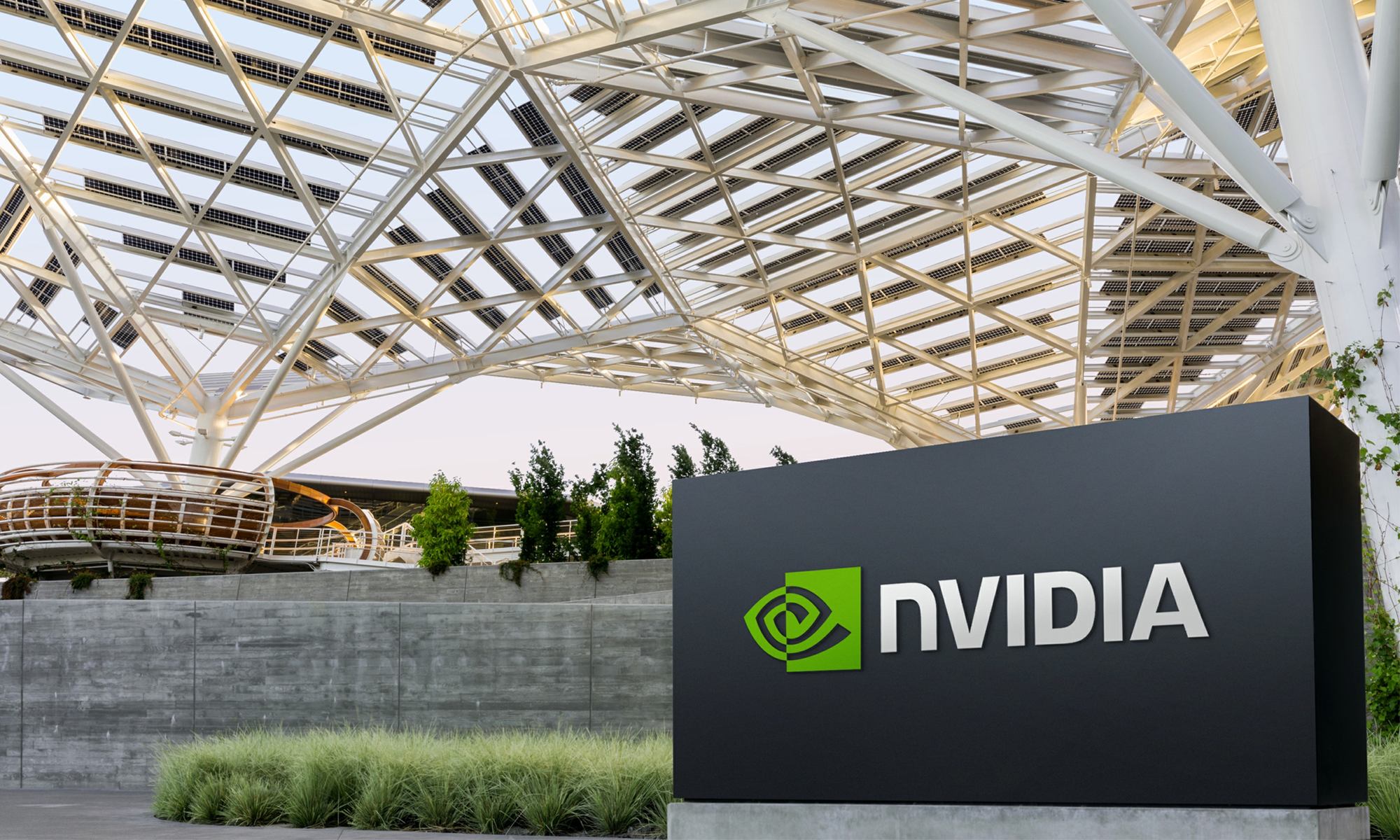With Nvidia (NVDA 2.82%) up by more than 40% from the 52-week low it touched in early April, the stock is now back near its record high. Concerns that a slowdown in spending on artificial intelligence (AI) infrastructure might have been coming now look to have been overblown.
At the same time, Nvidia is adding platforms and products that customers can integrate into the growing AI ecosystem. Given the company's solid growth prospects and its near-record-high market cap, it might be time for Nvidia to split its stock again.
If that happens, it would be Nvidia's seventh stock split since the chipmaker began trading publicly in 1999. Its last was a 10-for-1 split implemented a little more than a year ago on June 7, 2024.

Image source: Nvidia.
Nvidia expands its AI leadership
Nvidia's leading graphics processing units (GPUs) have driven a remarkable jump in revenue for the company. Data center sales exceeded $39 billion in its recently reported fiscal first quarter. That was up from just $4.3 billion only two years ago. The company has a clear plan about how to keep that growth going, too.
Nvidia is now looking beyond its large tech customers to maintain, or even accelerate, growth. It was already a key technology partner to the U.S.-based Stargate project announced in January by OpenAI, SoftBank, and Oracle. More recently, it joined those tech companies and others to develop a massive Stargate AI campus in the United Arab Emirates (UAE). That Middle Eastern country's AI campus will eventually have a footprint of 10 square miles with 5 gigawatts of electricity dedicated to powering its data centers.
That isn't the only project where Nvidia is working to expand nations' sovereign AI ambitions. CEO Jensen Huang recently traveled to Germany and announced a new AI factory to be operated by Deutsche Telekom. Huang stated:
In the era of AI, every manufacturer needs two factories: one for making things, and one for creating the intelligence that powers them. By building Europe's first industrial AI infrastructure, we're enabling the region's leading industrial companies to advance simulation-first, AI-driven manufacturing.
At a Paris tech summit just last week, Nvidia revealed that several hyperscalers are also working with France, Italy, and the United Kingdom to build sovereign AI computing infrastructure that relies on Nvidia's cutting-edge GPUs.
News of all of those partnerships has helped propel Nvidia's stock upward. All that business and stock momentum makes it reasonable to wonder if Nvidia could be looking at another stock split.

NASDAQ: NVDA
Key Data Points
History shows stock splits often precede outperformance
At least in the short term, that could well result in Nvidia stock providing investors with market-beating returns. Historical data shows that over the 12 months following the announcement of a stock split, the shares of the company in question typically outperform the market.

Image source: Statista.
That makes sense when one thinks about why companies generally decide to split their stocks. The financial maneuver itself doesn't change anything about the inherent value of the business, nor of any shareholder's piece of it. But splits are typically conducted from a position of strength. Company management wouldn't want to shine a spotlight on their stock at a time when the underlying business is suffering, after all.
There are several practical reasons for a stock split. A lower share price gives retail investors a feeling of affordability. With the growing ability to trade fractional shares, share price really shouldn't matter, but it still seems to for many retail investors. Splitting a stock can also benefit company employees by making the shares more accessible should the company offer an employee stock investment plan.
Nvidia hasn't given any indication that it plans another stock split. Yet there could be one on the horizon as its business continues to thrive and demand for AI infrastructure expands. With or without a stock split, however, investors should consider buying and holding Nvidia stock for the long term.








